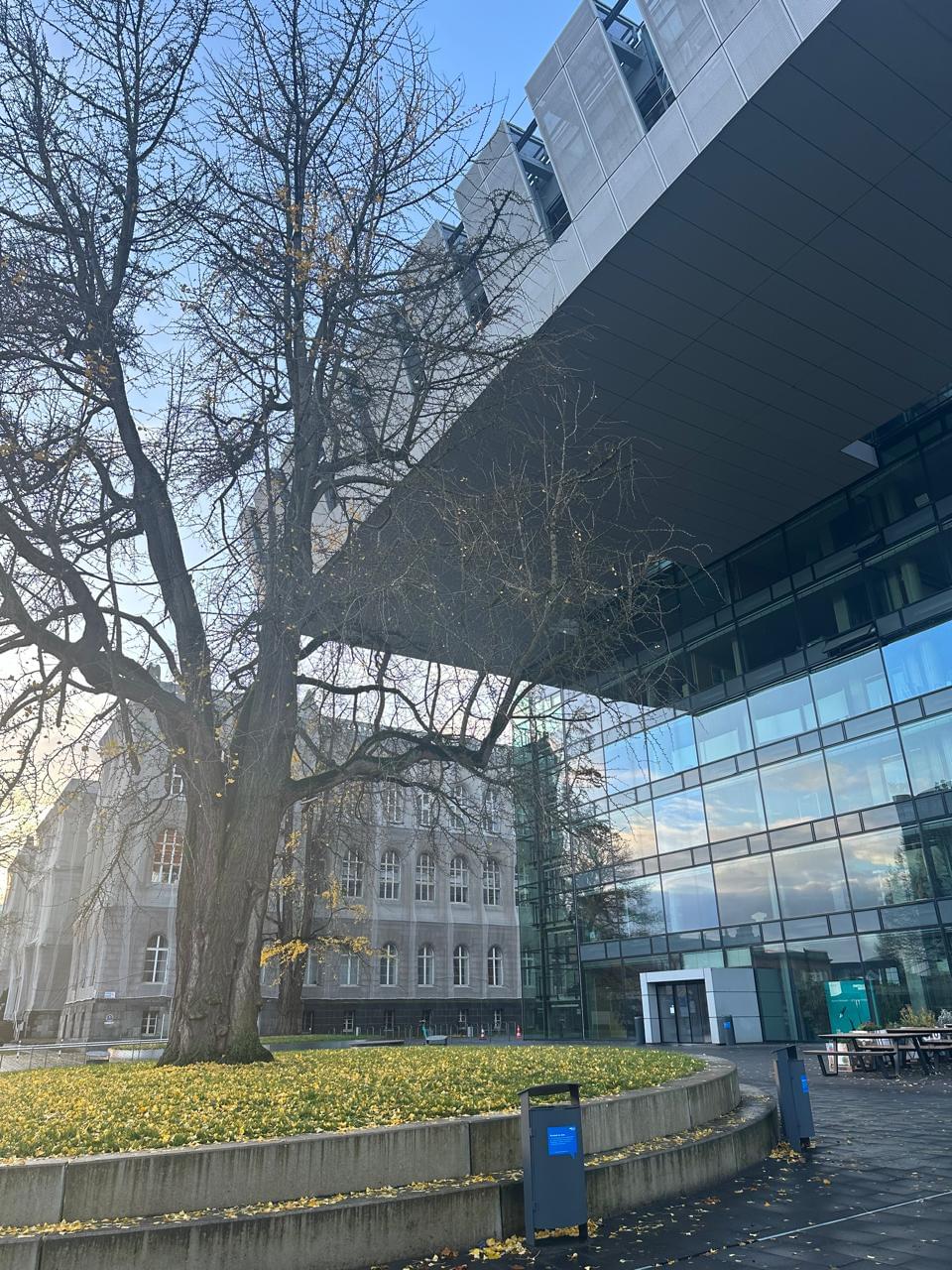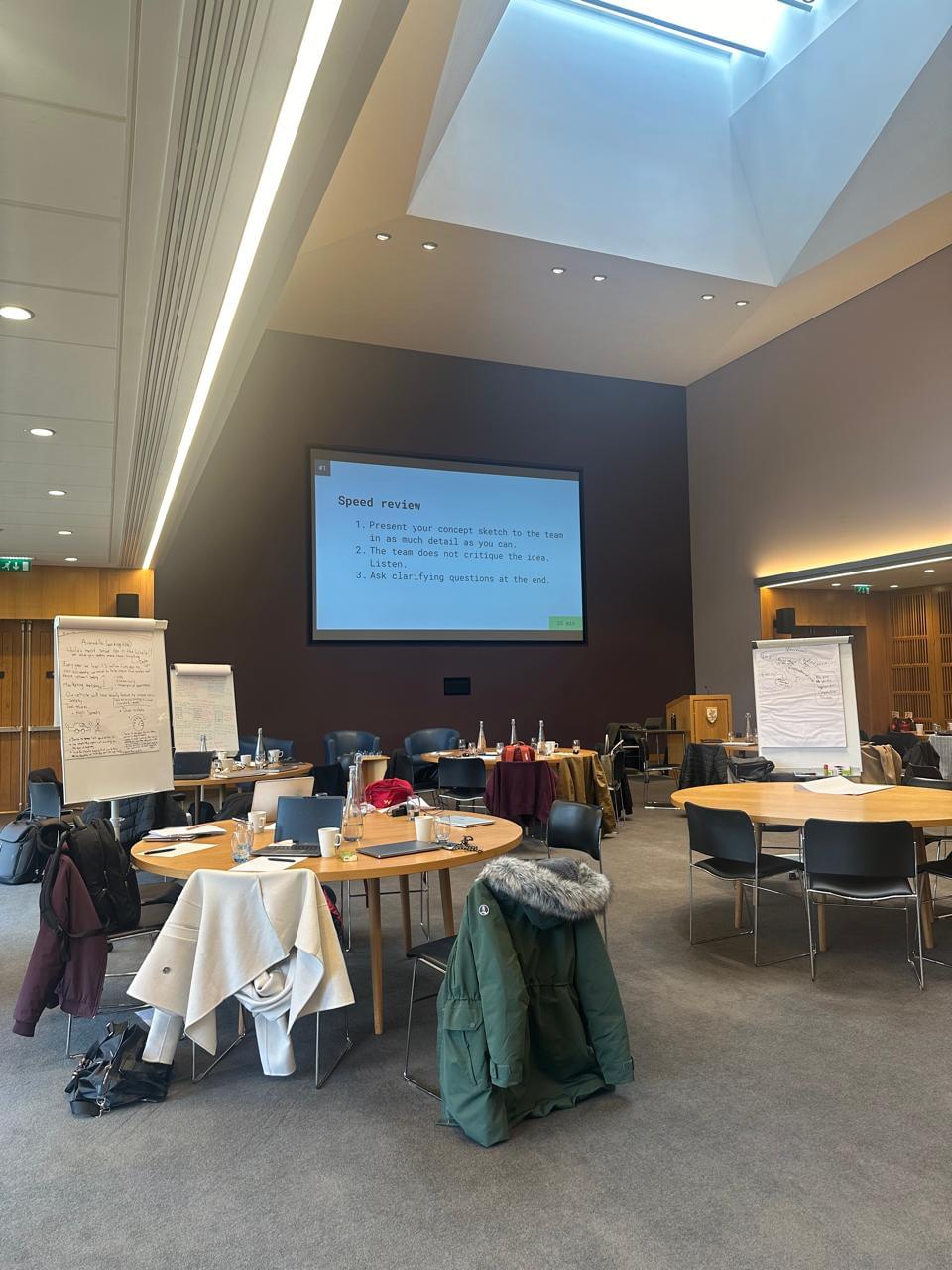What Students Say
Likes
- The Faculty: All professors of our course are extremely knowledgeable, have a rich academic and professional history and it also reflects in the teaching.
- The mode of teaching: We have a spilt classroom method, where we learn the theory part of the lecture beforehand and actually get the opportunity to practically apply those concepts.
- The Events: As we are students of the business school, we get the opportunity to participate in formal workshops/ events with outside lecturers and also we get to attend informal parties and events which are always a great place for interaction and networking.
Dislikes
- The mode of examination: A lot of students feel that the current mode of examination which is "online" is not the best way to evaluate a master's degree course and in todays era of chatgpt, it is a piece of cake for anyone to score high.
- Job Search/Placement: I feel for a university, who is providing us with the education should also support students for job search. They can offer focussed preparation for specific positions/industries, interview preparation etc. - This is more relevant when you look at it from a perspective that students studying at the business school are essentially internationals and hence new to the german market, they should be trained and supported with that know-how.
- Lack of Diversity: Connected to my previous point, I feel that there was a significant lack of diversity in my course - major chunk of students are from India. Which doesn't exactly contributes to an "international exposure".
Course Curriculum
- I have mentioned my opinion about the learning front of my course earlier.
- But to talk specifically about the course difficulty, I would say it is balanced; I would call it more hectic than difficult. And yes, it is a mix of both theory and practice and sometimes more practice than theory, which is a great part of our course.
- Typically, there would be at most 2 lectures scheduled for a day.
- Usually one subject would have one lecture per week, which seems less at first but is not.
- At average, there are 30 students in a class and unfortunately, in terms of diversity, there are a majority of Indians in our class.
Admission Experience
-
I applied to the following colleges:
- RWTH Business School: Admitted
- HTW Berlin: Admitted
- Technical University Munich: Rejected
- Hamburg University of Technology: Admitted
- Berlin School of Business and Innovation: Admitted
- Otto Beisheim School of Management: Rejected
- There were also a few other university applications that I didn't go through with.
- As for the rejections, I couldn't get into TUM because I had a low GMAT score, because I only gave the exam at the last moment.
- The reason for going ahead with RWTH was essentially because of the university reputation in Germany.
- In Germany, TUM and RWTH are two very renowned universities, and I luckily got the opportunity to study at one.
- The other reason was that I really liked the course curriculum; it seemed the right fit for me and the right mix of modules that I was looking for. I also liked the work of some of the professors for the course, which all contributed to finally choosing RWTH for my masters.
- The admissions process was pretty simple and straightforward, in my opinion. After receiving the contract and paying the first installment, I received access to the university portal where I could see the things that would be coming up. We also had a weekly student check-in where we could meet the other students from our batch and get to know them, and we also had the opportunity to ask any question that we might have regarding the course, fees, etc. to a faculty in charge.
- The only hurdle that we faced was for the APS certificate for the student visa, which was introduced that very year (end of 2022). The cycle for the certificate looked as long as 8 months for some students, which was troublesome for the visa.
- The eligibility criteria (as per the best of my knowledge) is a simple online application process; there is no mandatory requirement for a GMAT/GRE score.
- However, if your course is in English, you do need a language certificate( IELTS/ TOEFL) and the good score would be above 6.5/7.
- As I mentioned, the admission process wasn't too complicated for me; everything was well communicated.
- I applied for the winter intake, which is the only possible intake for my course and several others offered by the business school.
- It is a usual thing to have more course possibilities in the winter semester as compared to the summer semester at RWTH.
- So the application cycle begins from around December and goes on till 1st March. where if you apply before around 15th Jan, you can also avail an early bird discount of 3.000 euros if admitted.
- Now, after the end of the application period, the response on the application starts from May beginning and lasts till June/July.
- After that, it is essentially the visa process and the course begins in the last week of September and the lectures begin in October.
Faculty
- When it comes to the business school, I suppose there aren't a lot of professors, but the ratio of faculty to students is sufficient.
- If I have to describe the affect of the teaching methodology on securing a job, I would say, yes, the practical approach to teaching definitely is a plus point when it comes to communicating in interviews, but perhaps it is also the approach of the individual, that how do they use the learnings.
- Unfortunately, that is not the case; we do not get any support from faculty members in terms of securing any job.
- I particularly feel inspired by Prof. Daniel Wenzel; he is the professor of marketing, and as interesting is the field of marketing as interesting is the designed course content for that.
- Also, the way it is delivered to us is really impactful and lasting.
Campus Life
- It's hard to state the exact number of campuses, but it should be around 7-8.
- In terms of facilities, there's a university library, sports centre, and language centre, but there aren't any medical services.
- So, there are some events and activities that are always happening at the technical university, but I can't comment on that since I am not a part of the technical university.
- However, when it comes to the business school, we as well have a lot of happening events all round the year—we have summer party, a course party, meet & eat, christmas parties, etc.
Part Time Jobs
- At the business school, there are only limited assistant positions and the chances are also slim. If you speak German, that can help.
- I am not sure about the pay range but it would be around $500-$800 per month.
- Again, I would not be sure about the jobs available for students at the technical university and that would also be slightly unaccessible for the students of the business school.
- As a student assistant, you can only work 10 hours per week.
- If you're well connected to people and know your way around, you can have a good chance to get a campus job.
- Well, first of all, again, I don't think there is anything as to where "Indian" students prefer to work. If you're graduating from a business school, you would obviously like to work in a consulting/management field.
- The hourly wage varies from 13 to 16. And I think it is not too difficult to secure a part-time/student job. The job application process is like any other application process; LinkedIn is a great place to look for jobs.
Placement
- The current job market unfortunately is not so welcoming, and hence the opportunities is limited and the competition is high.
- 6 months might not be enough sometimes to look for a job and can take longer.
- The salary should range from 50K-80K depending on the role and company.
- Students do find jobs after graduation but some might have to work longer at student jobs before getting a full-time job.
- I currently do not have any batchmates with full-time jobs.
- The common organisations would be Henkel, Infineon, Audi, and Mercedes.
Accommodation
- I live in an off-campus apartment, which I found from the most famous and common place to look for housing options in Germany, which is Wg-Gesucht.
- My monthly rent is around 450, which is on the higher side considering Aachen.
- One can find much cheaper accommodation in Aachen; however, finding accommodation in Aachen isn't straightforward.
- It's a really difficult process to find a good place to live in Aachen; as it is a student city, there's a constant demand for apartments.
- I personally luckily did not face a lot of challenges in finding an accommodation and would just recommend starting looking early on and looking for new ads daily.
- Since the university is spread across the entire city and is not at just one location, if you're at a fair distance from the centre, you're good to go.
- And there is no such thing as "a place where Indian students stay.".
Exams
- The exam that is required is IELTS or TOEFL if you're enrolling for an English-speaking degree.
- Essential documents would be LORs, motivation letter, CV, your previous degree, and schooling certificate.
- There wasn't any interview process for me.
- However, there was a pre-requisite for my degree, which was having a minimum of 1 year of work/corporate experience.
Fees
-
As far as the fees is concerned, it can be broken down in two bits:
- 1. The tuition fees, which are about 30.000 euros and are paid in equal installments per semester (3 semesters).
- 2. The other thing is the semester contribution, which is around 350 euros, paid per semester and is basically a charge for your semester ticket- that allows you to travel through Germany without any ticket.
- Talking about the monthly expenses, one can live in Aachen comfortably with around 1000 euros per month, inclusive of rent, food, insurance, outings, etc. ( This could sometime be more or less depending if you're taking any external paid classes, for instance language classes.)
Scholarship
- Yes, there is in fact a provision to apply for scholarships at RWTH.
- There are around 4/5 scholarship opportunities that you could apply for.
- I do not recall the name of each, but I as well applied and got a scholarship- it was a Women in Tech Scholarship; the award amount was 4.000 euros.
- There are other scholarships as well for instance, the Academic Excellence Scholarship, which is an award of 6,000 euros.




